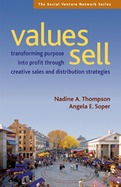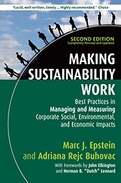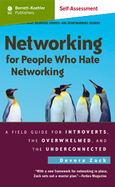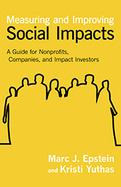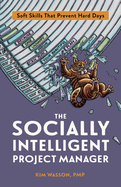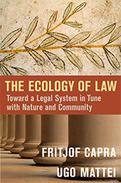2007
In this practical and inspiring guide, Nadine Thompson and Angela Soper draw on real-world examples--from Tom's of Maine, Seventh Generation, Honest Tea, and many other innovative companies--to detail concrete steps for designing sales and distribution strategies that fit the needs, interests, and habits of your target customers. They show how to turn your stakeholders into enthusiastic partners by ensuring that all of your relationships--with your salespeople as well as other employees, your customers, and your suppliers--are beneficial and fulfilling on more than just an economic level.
- Presents practical, detailed advice for developing innovative sales and distribution strategies
- Features examples from companies such as Tom's of Maine, Seventh Generation, Honest Tea, and many others
Offers a complete guide to the details of implementing and measuring the impact of CSR initiatives
Most companies today have some commitment to corporate social responsibility, but implementing these initiatives can be particularly challenging. While a lot has been written on ethical and strategic factors, there is still a dearth of information on the practical nuts and bolts. And whereas with most other organizational initiatives the sole objective is improved financial performance, sustainability broadens the focus to include social and environmental performance, which is much more difficult to measure.Now updated throughout with new examples and new research, this is a complete guide to implementing and measuring the effectiveness of sustainability initiatives. It draws on Marc Epstein's and new coauthor Adriana Rejc Buhovac's solid academic foundation and extensive consulting work and includes best practices from dozens of companies in Europe, Asia, North America, South America, Australia, and Africa. This is the ultimate how-to guide for corporate leaders, strategists, academics, sustainability consultants, and anyone else with an interest in actually putting sustainability ideas into practice and making sure they accomplish their goals.
- A comprehensive guide to implementing and evaluating corporate sustainability initiatives
- Combines a thorough grounding in the latest research with the best practices of 100 organizations worldwide, including prominent companies such as Canon, Coca-Cola, Dell, FedEx, General Mills, Johnson & Johnson, Nestle, Starbucks, Warner Brothers
The best practices in corporate social responsibility (CSR) are no longer the exclusive domain of companies like Ben & Jerry's or the Body Shop; now even companies like GE and Wal-Mart are making significant financial and organizational commitments to social and environmental issues. But senior executives are realizing that implementing sustainability is particularly challenging. While a lot has been written on ethical and strategic factors, there is a dearth of information on the practical nuts and bolts of implementation and virtually nothing on how to measure the results.
In Making Sustainability Work, Marc Epstein builds on his influential and highly respected previous work to produce the ultimate how-to guide for corporate leaders, strategists, academics, sustainability consultants, and anyone else with an interest in actually putting sustainability ideas into practice.
PRODUCT INFORMATION
Networking for People Who Hate Networking, an on-line assessment experience, is an instrument available in conjunction with the second edition of Devora Zack's Networking for People Who Hate Networking. This tool will help you assess your networking style. Networking enables you to accomplish the goals that are most important to you. But you can't adopt a style that goes against who you are—and you don't have to. As Zack writes, “You do not succeed by denying your natural temperament; you succeed by working with your strengths.”
Format: Online Subscription
Price: $9.95 for one-year subscription, or five tests, whichever comes first
Description: This instrument consists of 20 questions. The assessment will produce a graphic of your results and interpretation from the author. You can take the test up to five times within a 12-month period and compare your results.
Author’s welcome
First, I want to say I’m in awe of you. Presumably, you hate networking. Nevertheless, you decided to shell out a few clams to invest in an online self-assessment featuring this very topic. There’s a decent chance you’ve also read (aka skimmed) the companion book Networking for People Who Hate Networking 2.0. Way to go!
I’ll make it worth your while. Now let’s get down to it.
Why is Networking so Irksome?
No offense, but that isn’t the underlying question. Allow me to gently rephrase your query:
What is Real Networking vs the Phony Facsimile Posing as Networking?
Until the first edition of Networking for People Who Hate Networking surfaced, the universal concept of networking was along the lines of: more is more, constant contact, shameless self-promotion, and get out there ASAP.
As you have always suspected, this methodology backfires for approximately 85% of the population. These so-called techniques make most of us want to run and hide, crash and burn, declare an allergic reaction to networking and proclaim to hate it.
Good news! Working a room isn’t real networking. Shmoozing doesn’t equate with a successful, fulfilled life and career. Less is (gasp!) more.
What is commonly labeled ‘Networking’ is a misnomer.
Real networking is the art of building meaningful, lasting, mutually beneficial connections one person at a time.
- Cowritten by the author of Making Sustainability Work , a book that revolutionized best practices in sustainability and has been widely adopted in boardrooms and classrooms
- Offers a detailed, reliable, and proven approach to rigorously evaluating and increasing the social impact of philanthropic efforts
- Based on interviews with over sixty foundations, nonprofits, corporations, and investment firms and filled with real-life examples
The world is beset with enormous problems that desperately need solutions. And as a nonprofit, NGO, foundation, impact investor, or socially responsible company, your organization is on a mission to provide those solutions.
But what exactly should you do? And how will you know whether it's working? Too many people assume that good intentions will result in meaningful actions and leave it at that. But thanks to Marc Epstein and Kristi Yuthas, social impact can now be evaluated with the same kind of precision achieved for any other organizational function.
Based on years of research and analysis of field studies from around the globe, Epstein and Yuthas offer a five-step process that will help you gain clarity about the impacts that matter most to you and will provide you with methods to measure and improve those impacts. They offer a systematic approach to deciding what resources you should invest, what problem you should address, and which activities and organizations you should support. Once you've made those decisions, they provide tools, frameworks, and metrics for defining exactly what success looks like, even for goals like reducing global warming or poverty that are extremely difficult to measure. Then they show you how to use the data you've gathered to further develop and increase your social impact.
Epstein and Yuthas personally interviewed leaders at over sixty different organizations for this book and include examples from nearly a hundred more. This is unquestionably the most complete, practical, and thoroughly researched guide to taking a rigorous, data-driven approach to expanding the good you do in the world.
High-performing teams don't happen by magic. You need processes that are designed in a socially intelligent way if your team is going to overcome the modern world's tough challenges with coordination. To be a star project manager, you have to communicate with people in their individual learning styles, provide accountability in ways that won't be demotivating, and run meetings and minutes that people won't tune out. Your processes must be constructed in ways that respect the complex realities of social dynamics step by step.
You have to know your team before you can motivate them, and you have to motivate them before you can manage them. In this book are foolproof techniques to make sure your team connects with you, each other, and everyone they need to get the job done. After all, a team should be more than the sum of its parts—and it's up to the project manager to provide the glue that holds it all together.
2015
The Ecology of Law
Fritjof Capra and Ugo Mattei argue that at the root of many of the environmental, economic, and social crises we face today is a legal system based on an obsolete worldview. Capra, a bestselling author, physicist, and systems theorist, and Mattei, a distinguished legal scholar, explain how, by incorporating concepts from modern science, the law can become an integral part of bringing about a better world, rather than facilitating its destruction.
This is the first book to trace the fascinating parallel history of law and science from antiquity to modern times, showing how the two disciplines have always influenced each other—until recently. In the past few decades, science has shifted from seeing the natural world as a kind of cosmic machine best understood by analyzing each cog and sprocket to a systems perspective that views the world as a vast network of fluid communities and studies their dynamic interactions. The concept of ecology exemplifies this approach. But law is stuck in the old mechanistic paradigm: the world is simply a collection of discrete parts, and ownership of these parts is an individual right, protected by the state. Capra and Mattei show that this has led to overconsumption, pollution, and a general disregard on the part of the powerful for the common good.
Capra and Mattei outline the basic concepts and structures of a legal order consistent with the ecological principles that sustain life on this planet. This is a profound and visionary reconceptualization of the very foundations of the Western legal system, a kind of Copernican revolution in the law, with profound implications for the future of our planet.


